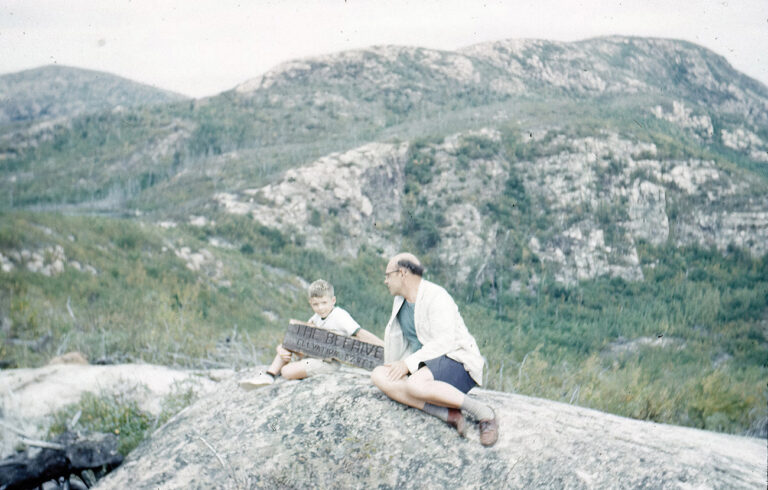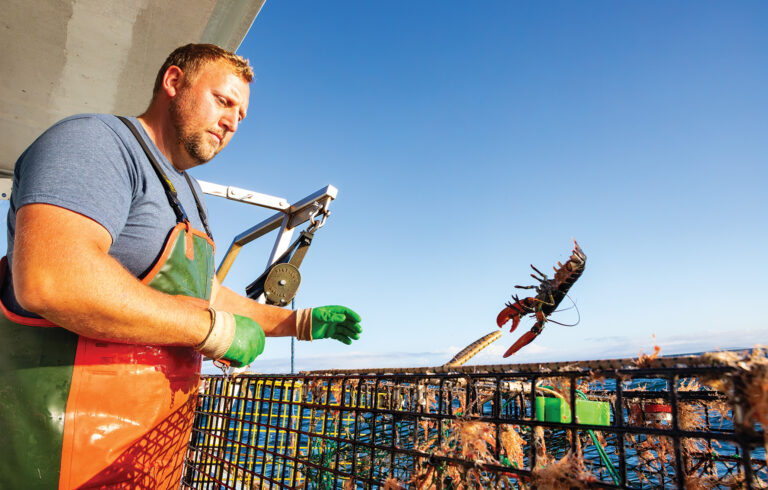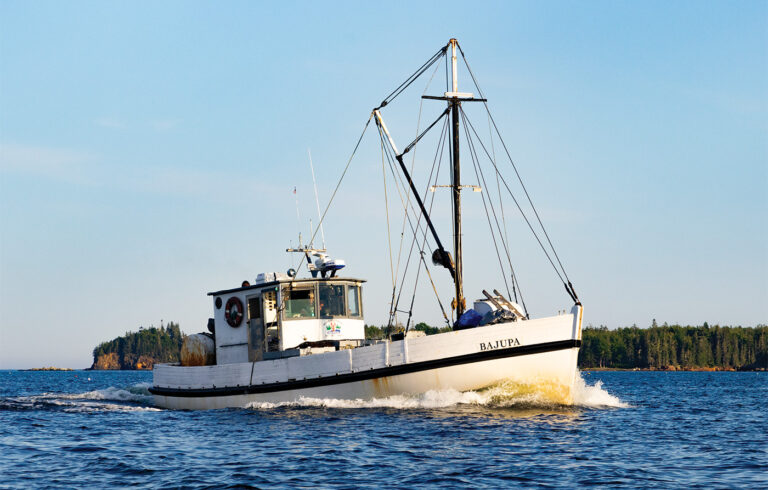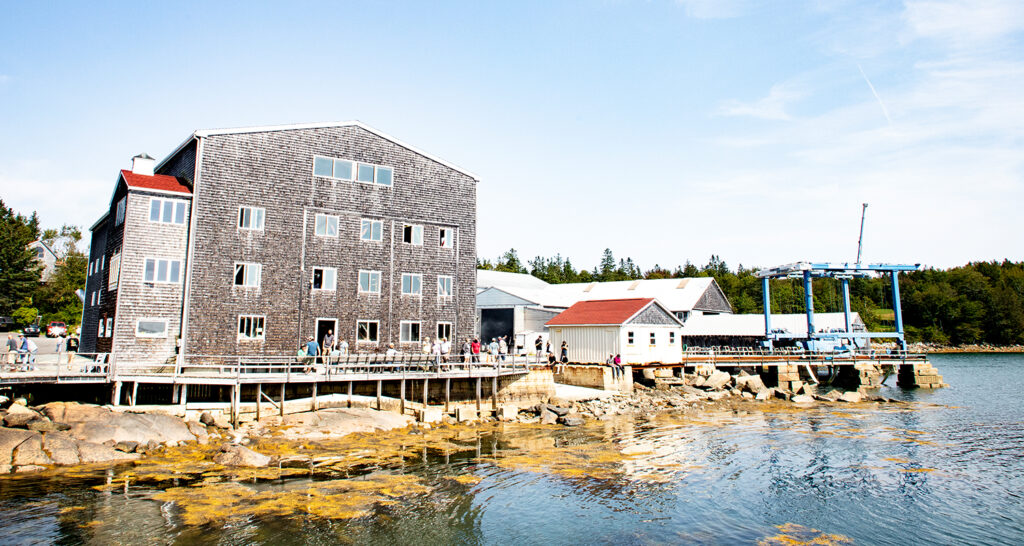
Photos by Jack Sullivan
“It’s a pretty small club, wooden boatbuilders. Maine is one of the hot spots,” said Steve White, a celebrated member of the club who presides over Brooklin Boat Yard, founded in 1960 by his father, the admired boat designer and builder Joel White, and known for its finely wrought vessels and willingness to innovate.
Back in Joel White’s day, wooden boatbuilding meant plank-on-frame construction. Under Steve White, it’s evolved to modern epoxy cold-molded wood construction of designs that include his father’s and those of other sought-after naval architects.
Modern techniques though they be, the yard’s outlook remains grounded in a love for the craft.
“We want to be considered one of the best custom boatbuilders in the industry,” said White. “We’re able to tackle unique projects and come up with great solutions to the owner’s desires. A big part of it is working with customers and seeing their satisfaction.”
Tucked down a narrow lane on the shore overlooking Eggemoggin Reach, considered the heart of the best cruising grounds on Maine’s coast, Brooklin Boat Yard is nestled in a community of fewer than a thousand year-round residents. A sign on the main drag boasts the community is the “Boatbuilding Capital of the World”—a tribute to builders of yachts and workboats like Brooklin Boat Yard, Atlantic Boat Company, Brion Rieff Boat Builders, Hylan & Brown, Eric Dow Boat Shop, and North Brooklin Boats, as well as marinas, boat designers, sailmakers, mooring services, and marine photography.
The town has a robust artisan and small-lodging vibe, too. And the famous WoodenBoat Publications and School is just a hop down a winding lane to the salt-scented sea.
Steve White is a great raconteur who obviously enjoys the personalities and talent behind each of the yard’s highly customized boats, each a work of art different from the next.
His personable style may be rooted in the story-telling ways of his grandfather, the author, essayist, and literary stylist E.B. White, probably best known for his children’s book Charlotte’s Web. Certainly the location of the yard is due to the author. In the 1930s, E.B. White and his wife, the New Yorker fiction editor Katharine White, moved from New York City to a
homestead in North Brooklin. The barn behind the house was the setting for the eminent spider.
“I had no idea what a famous writer he was until I got to prep school,” said White. “I just knew him as Grandpa.”
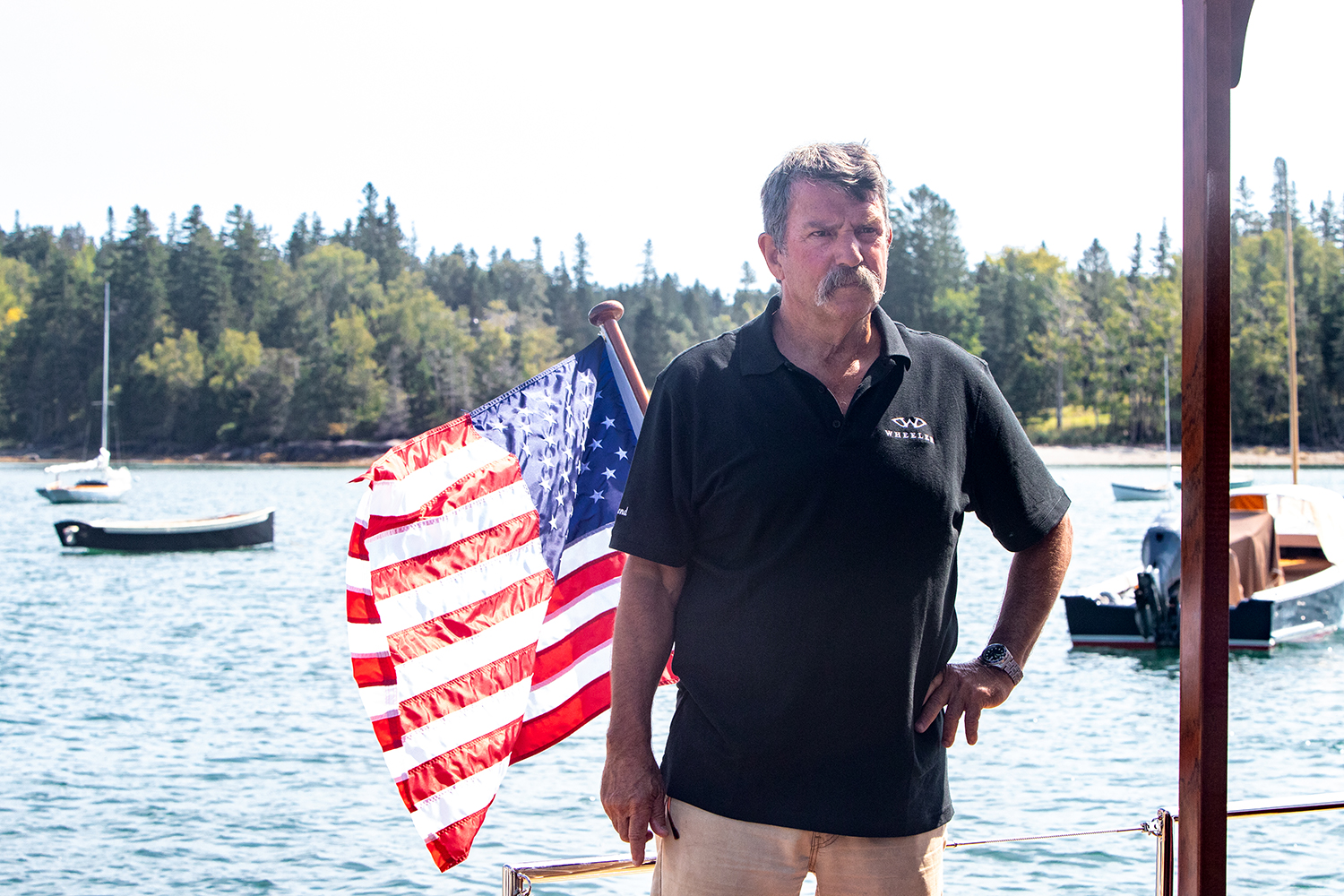
Joel White was three when his parents moved to Maine. After graduating from college and service with the U.S. Army, Joel returned home and started working for Arno Day, who built lobsterboats for local fishermen on the site of a former fish packing plant. When Joel bought the business, his reputation blossomed as a designer, over the years, of more than 50 boats, everything from prams to sailing and motor yachts. One of his most notable designs was a sleek 76-foot long racing sloop named Wild Horses and referred to as a “spirit of tradition” yacht for its evocation of classic style combined with modern, cold-molded construction and systems.
Growing up, Steve White didn’t expect to build boats. His youth was a mix of prep school, boatyard work, clam-digging, skiing, college, a junior year in Switzerland, bartending, and working on tugboats in Louisiana.
“Finally I said, ‘Maybe Brooklin doesn’t look so bad,’” he recalled with a laugh.
In 1978, he returned to the yard, learning skills along the way and gradually receiving more control over day-to-day operations, leaving Joel to focus on design—his real passion. Steve introduced cold-molded construction, an evolution Joel embraced for its stronger, lighter structure and comfortable ride.
The yard launched its first major cold-molded yacht—a Swede 55 racing/cruising sloop named Vortex—in 1990 and grew in step with leading designers such as Sparkman & Stephens, Dieter Empacher, Alden Yacht Design, and Stephens Waring Yacht Design.
With over 100 boats built, a Frers 74 sailboat named Foggy, launched in 2015, was its most complex project so far. Commissioned by renowned architect Frank Gehry, the design incorporated his ornamental styling, including hundreds of unique daylights and sculptural titanium components. The process, painstaking and precise, created, essentially, a functional work of art designed to withstand the crash of wind and waves.
The largest build was Sonny III, a 91-footer designed by Bruce Johnson and Brooklin Boat Yard. The biggest challenge? Time: The customer was 93 and required the boat before he died.
“We were literally building the boat as we were designing it, trying to stay ahead,” White said.
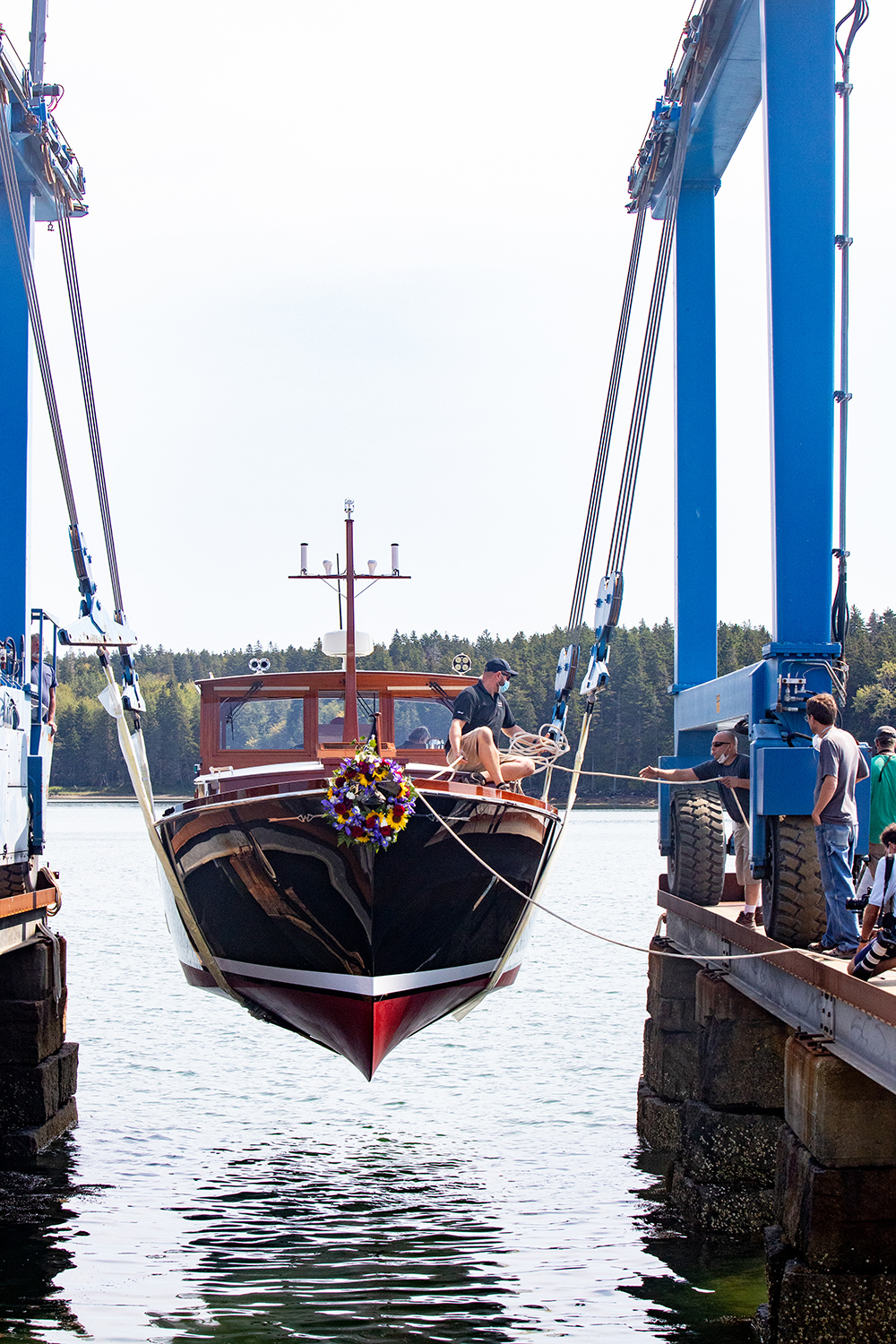
Legend, a replica of Ernest Hemingway’s yacht, hovers above the water moments before its launch. The vessel, commissioned by Wheeler Yacht Co., is similar to its predecessor in shape and style, but it goes twice as
fast and has modern accommodations.
Most recently, the yard splashed Legend, a Wheeler 38 replica of Ernest Hemingway’s yacht Pilar, combining heirloom style with state-of-the-art technology. White had the pleasure of delivering the boat south—a perk of his position.
White’s vision for the business? Well, it’s no longer his vision alone—he sold the yard to his employees through an employee stock ownership plan. There’s much to celebrate in that, he said—great people and amazing skills, for starters.
“And many of them are younger people,” he continued. “For a time, I worried we wouldn’t get younger people to come into the business. But a number of them seem to be drawn to it. They love the process of creating a completed product that you can take sailing or motoring.”
White, now in his late 60s, expects to remain hands-on
at least until he’s 70. Spending winters in southern climes, “I’m sort of the ambassador for the yard,” he said. “I see
that continuing.”
For Brooklin, the yard occupies a special place.
“The obvious piece is that it provides payroll for the people who work here, but it does more than that,” he said. “If people are proud of the work and enjoy being here, it’s a positive thing. And I really like the fact that my employees and their children spend time at the yard in the evenings and on weekends, enjoying their own boats and the water, and working on their own projects. It feels like an important contribution to the community.”

